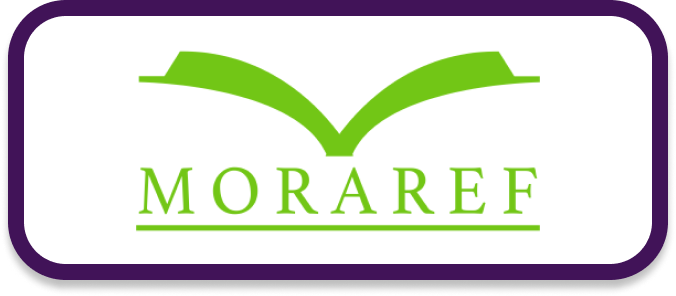Social solidarity collaborative action for equality in education and poverty reduction post conflict and disaster in Aceh, Indonesia
Abstract
Education is a road map of the nation's development, conveying the value of society and the purpose of the nation, where both formulas are invested in curricula. Poverty is a real challenge for education development, and it can be considered a direct result of collective leadership failure in the provision of both quality education and welfare support. This study examines a social collaborative action served by the community to provide an equal education for vulnerable children, a part of a solidarity coping strategy for poverty reduction. The samples of this qualitative approach study are social workers from Yayasan Kesejahteraan Masyarakat Aceh (Yakesma/Aceh Welfare Foundation), who initiates a social collaborative action, involving society, educators, and other stakeholders in various role-play. This study proves that combined actions of social workers, educators, and society in providing equal education to children from lower-income families, beggars, and sexual violence, have given a significant impact on the children and families, giving more access the children to have proper education, formal and non-formal education, financial support through a foster parent program, and provides a role substitute of parents. This collaborative program has created a parthway to a proverty reducation in Aceh, Indonesia. A part of the institution’s main goal to support the vulnerable children in Aceh.
Keywords
Full Text:
PDF ENGLISHReferences
Ackerman, D. B. (1989). Intellectual and practical criteria for successful curriculum integration In H. H. Jacobs (Ed.), Interdisciplinary Curriculum: Design and Implementation Alexandria, VA: Association for Supervision and Curriculum Development
Ali, S., & Kelly, M. (2004). Ethics and social research In C. Seale (Ed.), Researching society and culture (2nd ed.). Thousand Oak, CA: Sage
Ary, D., Jacobs, L. C., & Sorensen, C. (2010). Introduction to research in education (8th ed.). Belmont, CA: Wadsworth
Barrie, S., Andrews, J., Dean, L., & Heimanis, I. (2010). Employability: Realising the potential of a university education. In Steve Denton & S. Brown (Eds.), A practical guide to university and college management. New York, NY: Routledge
Biggs, J. (1999). Teaching for quality learning at university: What the student does. Buckingham, England: The Society for Research into Higher Education and Open University press
Boud, D., & Costley, C. (2007). From project supervision to advising: New conceptions of the practice. Innovations in Education and Teaching International, 44(2), 119-130. https://doi.org/10.1080/14703290701241034
Brady, L., & Kennedy, K. (2010). Curriculum construction (4th ed.). Melbourne, Australia: Pearson
Corbin, J., & Strauss, A. (2008). Basics of qualitative research: Techniques and procedures for developing grounded theory (3rd ed.). Thousand Oaks, CA: Sage
Creswell, J. W. (2009). Research design: Qualitative, quantitative, and mixed methods approaches (3rd ed.). Thousand Oaks, CA: Sage
Denzin, N. K., & Lincoln, Y. S. (2003). Introduction: The discipline and practice of qualitative research. In N. K. Denzin & Y. S. Lincoln (Eds.), The Landscape of Qualitative Research: Theories and Issues (2nd ed.). Thousand Oaks, CA: Sage Publications
Habiburrahim, H. (2018). A review of the department of English language education curriculum development. Englisia: Journal of Language, Education, and Humanities, 6(1), 1-14. https://doi.org/10.22373/ej.v6i1.3529
Nashriyah, Alfiatunnur & Dermawan (2021). Examining the efforts of the Aceh Government in dealing with child victims of sexual violence. Gender Equality: International Journal of Child and Gender Studies, 7(2), 273-291. https://jurnal.ar-raniry.ac.id
Orrell, J., & Higgs, J. (2012). Social and political change: Implications for professional and practice-based university education. In J. Higgs, R. Barnett, S. Billet, M. Hutchings & F. Trede (Eds.), Practice-based education: Perspectives and strategies. Rotterdam, The Netherlands: Sense Publishers
Whyte, S. (2011). Learning theory and technology in university foreign language education: The case of French universities. Arts and Humanities in Higher Education, 10(2), 213-234. https://doi.org/10.1177/1474022210364783
DOI: http://dx.doi.org/10.22373/equality.v10i1.22862
Refbacks
- There are currently no refbacks.
Copyright (c) 2024 Alfiatunnur, Mike Hardy, Sariya Cheruvallil Contractor, Nazliati, Nashriyah

This work is licensed under a Creative Commons Attribution-ShareAlike 4.0 International License.


























